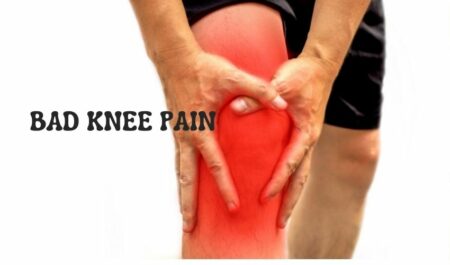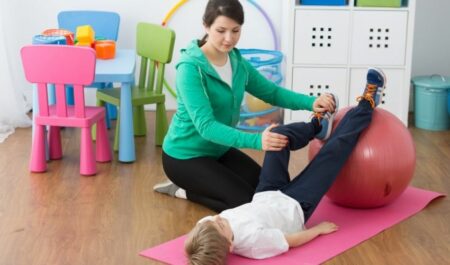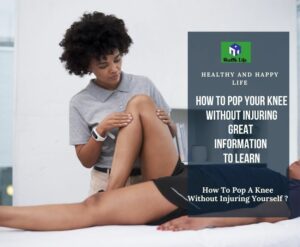Noises coming from your knee, such as cracking or popping, are common, especially after the age of 40. Crepitus is the term used to describe these popping sounds. However, while crepitus in your knee is usually harmless, it can occasionally signify the presence or development of another medical disease in your body. From this article you can learn on how to pop your knee by yourself with simple instructions.
If you experience a peculiar sensation in your knee joint, such as feeling as if it’s inflated with air or locked into place, it’s possible that you’ll have a strong desire to “pop” the knee back into its proper position.
Providing you move slowly, attentively, and with intention, this can be accomplished securely.

The Proper Way To Pop Your Knee.
The knee joint is a little difficult to work with. Between your tibia and fibula (shin bones) and your femur (thigh bone) are layers of cartilage that act as a shock absorber. Patella is the bone that protects your knee joint from external forces (kneecap). If you experience any discomfort while attempting to crack your knee, stop immediately.
To pop your knee, just do a simple stretch.
- By sitting down, you can relieve the pressure on your knee.
- To begin, extend your right leg straight in front of you and point the toe of your right foot upward.
- Raise your leg as high as it will allow you to go. To hear a pop, bend your knee in and out toward the rest of your body until you hear a click.
Precautions
Knee pops are classified into two categories:
- Pathological knee pops are ones that can only be felt or heard by the person experiencing them. The sound of physiological knee snaps is loud enough for everyone to hear.
- Physical treatment or further testing to uncover the underlying issue with your knee joint may be required if your knee cracks on a regular basis and is caused by a physiological condition.
What’s Causing Your Knee To Feel Like It Needs To Pop?

Synovial fluid is a lubricant that coats the surfaces of your joints. This fluid contains a variety of components, including oxygen and nitrogen. Sometimes the gases produced by this lubricant might build up in your knees and need to be expelled, which results in a “crack” in your knees.
However, the reasons of crepitus are not always as easy as they appear. Rather than giving up, experts are still trying to figure out what is causing the popping and cracking sounds that we hear in our joints.
Knee cracking can be caused by a number of factors, including broken bones that do not mend properly and tendons that catch on the ridges of your bones and muscles as you move.
As you grow older, the cartilage in your knees may begin to wear out. When you move your knees, the degradation of your knee joint might cause it to feel “creaky” because the bones grind against one other.
Pain in your knee joint might occasionally be a warning sign that you have a knee injury or another growing health concern.
- Osteoarthritis of the knee.
- ACL injury.
- Torn or strained meniscus.
- Bursitis (inflammation of the bursa inside your knee joint).
- Iliotibial band syndrome.
- Plica syndrome.
When Should You Go To The Doctor?
If you’ve ever been wounded and felt a “pop” in your knee at the time of the incident, there’s a good probability that a tendon or a bone has been cracked or broken. Seek medical attention to determine whether or not you require additional tests.
If you detect any of the following symptoms in your knee, schedule an appointment with your doctor.
- An occasional appearance of redness or swelling around your kneecap is normal.
- An injury or after exercising, you may get a fever.
- When you touch your knee, you may feel soreness or pain.
- Walking or jogging causes persistent discomfort.

If you are experiencing severe symptoms, you may need to go to the emergency hospital. These are some examples:
- Impossibility of bending your knee
- When an injury occurs, you may hear your knee pop or shatter.
- A great deal of pain
- Hemorrhage is a swelling that arises suddenly and without apparent cause.
Takeaway
If there is no pain or injury associated with the sound, cracking your knee is considered safe. Experimenting with joint-loosening exercises, such as Pilates and yoga, may help you become more flexible in your joints. Also, you might inquire about the advice of your physician.
Never try to crack a joint that is causing you pain. It is extremely dangerous. Keep in mind that frequent cracking and popping from your knee could be an indication of an injury or another developing health condition that necessitates medical treatment and observation.
